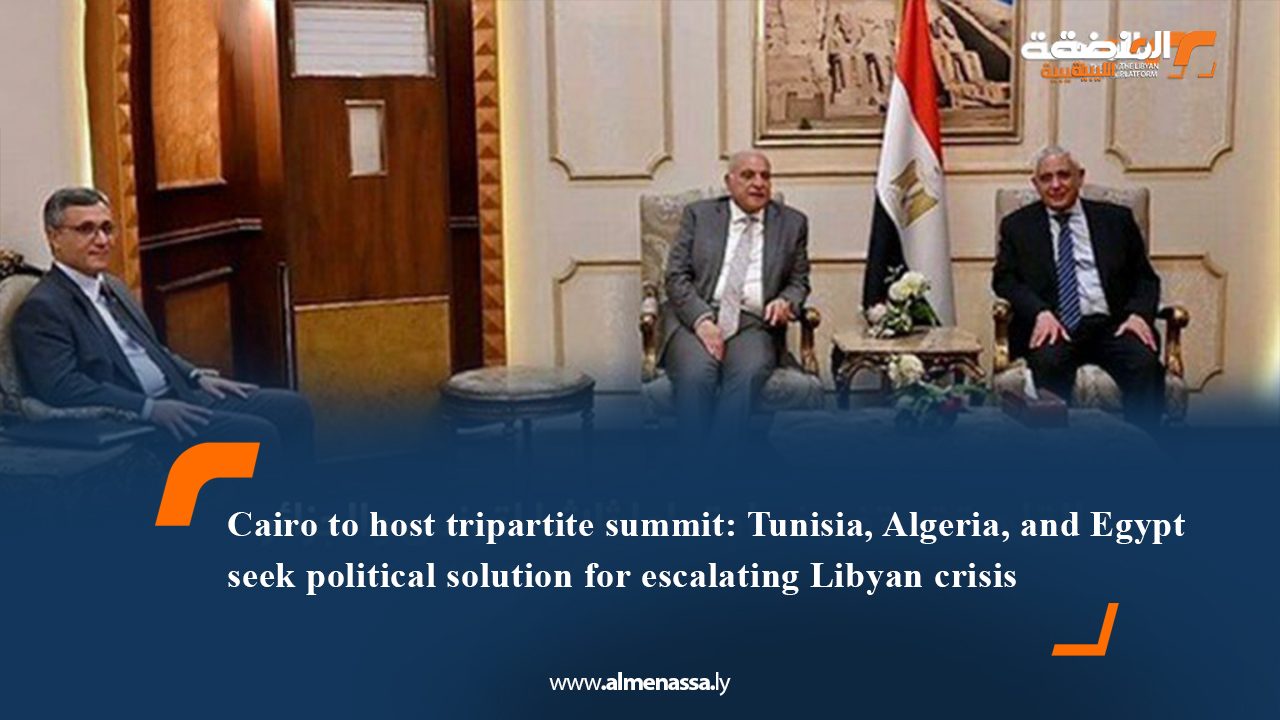The Egyptian capital is set to host a trilateral consultative meeting tomorrow, Saturday, bringing together the foreign ministers of Tunisia, Algeria, and Egypt. The gathering aims to discuss the accelerating developments of the situation in Libya and to forge pathways for advancing an “intra-Libyan” political solution, amidst the escalating security and political tensions sweeping the country.
The Tunisian Ministry of Foreign Affairs confirmed Minister Mohamed Ali Al-Nafti’s participation in this meeting, alongside his Egyptian counterpart Badr Abdelatty and Algerian counterpart Ahmed Attaf. The meeting aims to coordinate efforts among the three nations, building on their deeply rooted historical relations with Libya and their steadfast support for the Libyan people’s right to achieve security and stability.
For its part, the Algerian Ministry of Foreign Affairs clarified that Minister Attaf’s participation comes under direct instruction from President Abdelmadjid Tebboune, to reactivate the tripartite consultation mechanism, which has been dormant since 2019. This endeavour aims to establish common ground to support the Libyan national dialogue and achieve a comprehensive political settlement that resolves the current stalemate.
According to official statements from the three countries, the meeting will address the latest developments in the Libyan crisis, alongside a comprehensive assessment of efforts undertaken by neighbouring states and the United Nations Mission. It will also discuss ways to end the profound political and institutional division between the eastern and western governments, paving the way for national, free, and fair elections that would conclude the transitional phases ongoing since 2011.
These ministerial meetings are held periodically, rotating among the capitals of the three countries. The last trilateral meeting was convened in Tunis in mid-2019, where the participating states then reiterated their absolute rejection of any external interference in Libyan affairs, emphasizing the necessity of an “intra-Libyan” solution led by national actors and supported by the UN.


